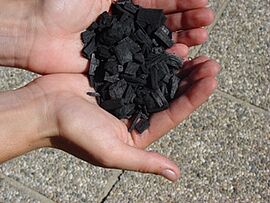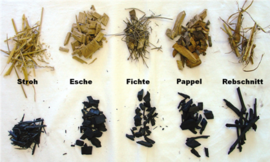Biochar for carbon sequestration in soils – production, biological effects and economic feasibility
The application of biochar as a soil additive is a technology used for sequestering carbon in the soil on a permanent basis. Biochar is produced by pyrolysis of biomass, primarily agricultural crop residues or wood chips from forestry operations. Using biochar as a soil additive has a sustainable effect in terms of removing carbon dioxide from the atmosphere and fixing the carbon in the soil structure.
The study is being carried out in 2010-2012 under the “New Energies 2020” Programme of the Austrian Climate and Energy Fund. The project has the following aims:
- to investigate the effects of the source material on biochar yield and quality;
- to optimise pyrolysis conditions in order to increase biochar yield;
- to set up experiments for long-term analysis of the carbon sequestration potential of agricultural soils;
- to analyse the nutrient bioavailability following biochar application and sorption properties in the soil;
- to investigate the effects of biochar on soil microorganisms and CO2 and non-CO2 greenhouse gas emissions from the soil;
- to identify framework conditions for promoting plant growth and yield using biochar;
- to analyse the economic feasibility of biochar production and application.
The aims of the study are to be achieved through close cooperation between AIT, the University of Natural Resources and Applied Life Sciences Vienna, Joanneum Research Graz, the Federal Forest Office, the Eco-Region of Kaindorf and the IK Traisental Interprofessional Committee.




